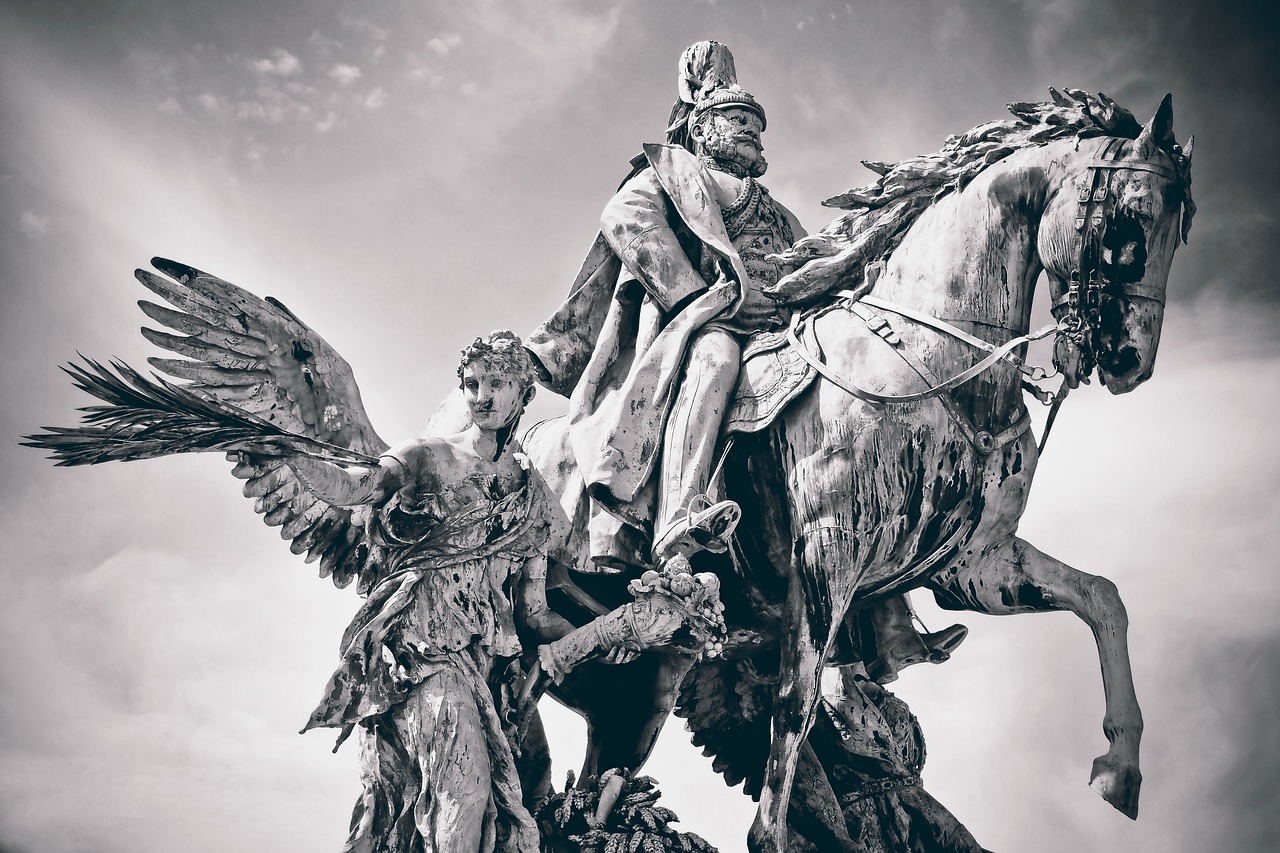The Jade Emperor: The Supreme Ruler of Heaven in Chinese Tradition
The Supreme August Jade Emperor, also referred to as Yuhuang Shangdi or Mr. Heaven, holds a pivotal role in Chinese mythology as its foremost deity. He presides over the cosmos from a majestic palace situated at the zenith of heaven, alongside a large family and an entourage of officials and ministers.
The figure of the Jade Emperor traces its roots back to ancient Chinese folk religion and tales, but his formal recognition as a divine figure in state-supported religion was established by Emperor Shenzong of the Song Dynasty in the early 11th century, after the emperor reported a vision of the Jade Emperor. Unlike the concept of a creator god, the Jade Emperor does not play a role in the creation of the universe which in Chinese belief is the result of the interplay between substance (K’i) and movement (Li). This dynamic interaction, rooted in the philosophy of yin and yang, generates the five basic elements: metal, wood, water, fire, and earth. Thus, rather than being a creator, the Jade Emperor embodies a custodian of morality.
The Jade Emperor serves more as a symbol and protector of ethical values in the universe.
Traditionally believed to be a disciple of the Primordial Heaven-honoured One, Yuanshi Tianzun, the Jade Emperor derives his authority from this figure, passing on his rule to the Heaven-honoured One of the Dawn of Jade of the Golden Gate.
Residing in his heavenly palace, the Jade Emperor is accompanied by his wife, the Jade Empress Tianshang Shengmu (also known as Mazu), along with a large family. Among them is his nephew Yang Shen, recognized as the Second Lord of Quality, and Erlang Shen, who is known for his Celestial Dog, Tiangou, the protector against evil spirits. Another important figure in his household is the Horse Head goddess, who is revered for her role in caring for silkworms, integral to the silk industry. One of his daughters, often referred to as Miss Seventh or Shi Quning, is petitioned by young women seeking insight into their future spouses.
The Management of the Heavenly Palace
The heavenly abode of the Jade Emperor is overseen by Wang the Transcendent Official, known as Lingquan in the Taoist traditions. His role includes guarding the gates of the palace, where he stands vigilant in armor, equipped with a heavy staff to fend off any malevolent entities. He also undertakes various tasks for the Jade Emperor, including administering justice by punishing transgressors and restoring righteousness. The grand palace hosts a vast collection of attendants, officials, ministers, and lesser deities, mimicking the elaborate bureaucracy found within traditional Chinese governance.
On the first day of the lunar New Year, all significant deities from the extensive pantheon of Chinese gods are required to pay their respects to the Jade Emperor.
Taoist practices have meticulously organized this celestial hierarchy into a structured belief system, wherein all palace members must submit their accounts of the prior year’s actions to the Jade Emperor on a designated day, typically coinciding with the New Year celebrations. On this occasion, major deities descend from their realms to honor their supreme leader. Those who have performed virtuous deeds are rewarded with promotions and enhanced blessings for the coming year, while wrongdoing leads to just reprisals, such as a demotion in divine status. Human behavior too is scrutinized, with reports submitted by various gods, including the kitchen god who monitors family conduct.
In representations of the Jade Emperor, he is typically depicted with flowing hair and a mustache, seated regally on a throne adorned in full imperial attire, illustrating a dragon-embroidered robe and a hat embellished with thirteen pearl strands, while holding the kuei, a significant ceremonial tablet.



